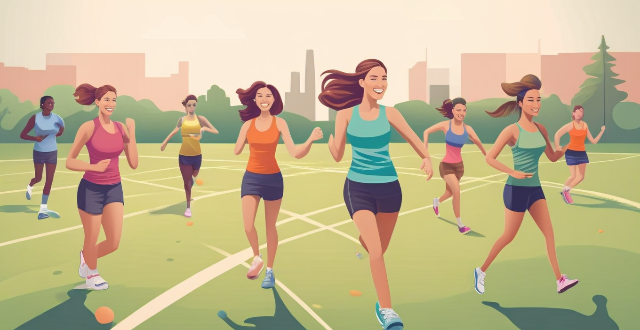The power of sports to bring people together and foster a sense of community is undeniable. However, the question remains: can sports be effectively utilized as a tool for breaking down social barriers and promoting equality? Sports organizations are increasingly recognizing the importance of diversity both on the field and off. By actively recruiting athletes from different backgrounds, sports can serve as a visible symbol of inclusion. Through exposure to diverse teams and athletes, sports can help dispel stereotypes and prejudices, encouraging fans and participants alike to appreciate the unique talents and contributions of individuals regardless of their background. Participation in sports teaches valuable life skills such as teamwork, discipline, and perseverance, which can be instrumental in overcoming social barriers. Success in sports can empower individuals, particularly women and minorities, by providing a platform for them to showcase their abilities and achieve recognition. Major sporting events can stimulate local economies by creating jobs and promoting tourism. Investments in sports facilities can revitalize neglected areas, providing much-needed resources and encouraging further development. Grassroots sports programs can engage community members, fostering a sense of belonging and pride that extends beyond the playing field. Unequal distribution of resources can hinder the ability of some communities to fully participate in sports. Physical accessibility for athletes with disabilities remains a crucial issue that needs to be addressed comprehensively. Ensuring equal opportunities and treatment for female athletes continues to be a focal point in the fight for equality in sports. Efforts to promote diversity must be genuine and avoid tokenism, ensuring that all participants feel valued and respected. Organizations must continuously assess their progress toward inclusivity and make necessary adjustments to maintain effectiveness. Educating stakeholders about the importance of inclusivity and equity is essential for maintaining momentum and driving change.

Can Sports be Used as a Tool for Breaking Down Social Barriers and Promoting Equality?
Sports have long been considered a universal language that transcends cultural, linguistic, and socio-economic barriers. The power of sports to bring people together and foster a sense of community is undeniable. However, the question remains: can sports be effectively utilized as a tool for breaking down social barriers and promoting equality?
The Positive Impact of Sports on Social Cohesion
*Enhancing Diversity and Inclusion*
1. Promoting Diversity in Athletics: Sports organizations are increasingly recognizing the importance of diversity both on the field and off. By actively recruiting athletes from different backgrounds, sports can serve as a visible symbol of inclusion.
2. Breaking Down Stereotypes: Through exposure to diverse teams and athletes, sports can help dispel stereotypes and prejudices, encouraging fans and participants alike to appreciate the unique talents and contributions of individuals regardless of their background.
3. Inclusive Coaching and Leadership: Coaches and leaders who embody inclusivity can set an example for their teams and communities, fostering an environment where differences are celebrated rather than shunned.
*Education and Empowerment through Sports*
1. Access to Educational Opportunities: Sports programs often provide educational opportunities for underprivileged youth, offering them a pathway to success that might otherwise be out of reach.
2. Life Skills Development: Participation in sports teaches valuable life skills such as teamwork, discipline, and perseverance, which can be instrumental in overcoming social barriers.
3. Empowerment through Achievement: Success in sports can empower individuals, particularly women and minorities, by providing a platform for them to showcase their abilities and achieve recognition.
*Economic Opportunities and Community Development*
1. Job Creation and Economic Stimulus: Major sporting events can stimulate local economies by creating jobs and promoting tourism.
2. Community Revitalization: Investments in sports facilities can revitalize neglected areas, providing much-needed resources and encouraging further development.
3. Grassroots Programs: Grassroots sports programs can engage community members, fostering a sense of belonging and pride that extends beyond the playing field.
Challenges and Considerations
While the potential benefits of using sports as a tool for social change are significant, several challenges must be addressed to ensure these efforts are effective and sustainable.
*Addressing Systemic Issues*
1. Funding Disparities: Unequal distribution of resources can hinder the ability of some communities to fully participate in sports.
2. Accessibility: Physical accessibility for athletes with disabilities remains a crucial issue that needs to be addressed comprehensively.
3. Gender Equality: Ensuring equal opportunities and treatment for female athletes continues to be a focal point in the fight for equality in sports.
*Maintaining Integrity and Avoiding Tokenism*
1. Genuine Representation: Efforts to promote diversity must be genuine and avoid tokenism, ensuring that all participants feel valued and respected.
2. Continuous Assessment: Organizations must continuously assess their progress toward inclusivity and make necessary adjustments to maintain effectiveness.
3. Education and Awareness: Educating stakeholders about the importance of inclusivity and equity is essential for maintaining momentum and driving change.
In conclusion, while sports have the potential to be a powerful tool for breaking down social barriers and promoting equality, it requires deliberate effort, continuous evaluation, and addressing systemic issues to truly achieve these goals. When executed thoughtfully and inclusively, sports can indeed serve as a catalyst for positive social change.